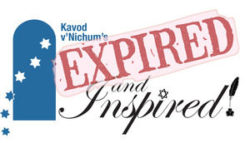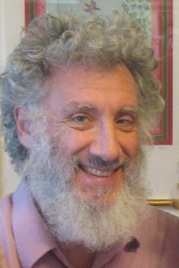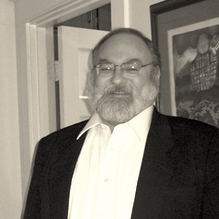
Burial decisions can be difficult, and sometimes they are even more complicated than usual. One contemporary category of complication involves situations of widow(er)s and remarriage. Here’s a basic scenario:
A is married to B, and B dies. A remarries C, and then C dies (and is not buried next to B). When A dies, should A be buried next to B or to C?
This precise situation arose in my wife’s family, where her father had been married and widowed twice (and then married a third time). My father-in-law’s first two wives were buried in different cemeteries. When he died, there was, initially, some anxiety about the decision about where he should be buried. As it turned out, my wife knew that when her birth mother (her father’s first wife) had died, they had bought a double plot. That resolved the problem.
What to Do?
Upon return from the funeral, my wife and I realized that we were confronted with a potentially similar situation, since I had been widowed (and had not bought a double plot at the time of my late wife’s death). We wanted to avoid potential difficulty for everyone down the road, and bought a double plot for ourselves. Our first choice would have been to buy plots next to that of my late wife, but that section was fully subscribed, so we made a purchase in a different section (of the same cemetery) and told our children about the purchase. (Though we assured them that we had no imminent need of the plots, they were somewhat distressed at the idea. That’s a separate issue.)
Another Situation
A friend recently confronted a different but connected issue. Her father had died years before, and he and his wife had purchased a double plot. But when the wife died recently, the purchased second plot was, at least temporarily, unusable due to water saturation, and she was buried at some distance (though within the same cemetery) from her late husband. My friend was distressed at this, and wanted to know if a disinterment and reburial was possible. Since that cemetery (in England) is under Orthodox supervision, the situation involved halachic issues.
What does the past tell us?
Some research shows that there is substantial discussion of this idea. (Kudos to David Zinner for pulling together this information and more.}
There is a general prohibition of disinterment, to prevent:
* humiliation of the dead
* confusion of the dead
* embarrassment of the dead
But there are exceptions, which are:
* If it was a temporary place (Semachot 13:5)
* To move the deceased to a family tomb (Semachot 13:7)
* To re-bury in Israel (Shulchan Aruch)
* If the original site is unprotected (Shulchan Aruch)
* If there was a stipulation at the time of burial (Shulchan Aruch)
* If the deceased did not have the right to be buried in that space (Shulchan Aruch)
More recently
The issue of disinterment was addressed by an interdominational panel of American rabbis in connection with challenges posed during and after World War II, when American soldiers had been buried in Europe in what were intended as temporary graves. Their response reads, in part:
Considering the special circumstances involved there can be no objection from the point of view of Jewish law to this proposed removal of bodies to America. In the first place it was clearly the intention of the government to move the bodies back to America, therefore this burial overseas was made with the intention of re-interment; second, the government will not maintain overseas cemeteries and [there] would be none to protect and guard any graves that might by chance be left; and third, because the re-burial will be al kever avoth [“in the grave of ancestors”] (Yoreh Deah 363 #1). [See Responsa in War-Time]
Long-standing duration
Such dilemmas go back to Talmudic times. In Tractate Mo’ed Katan (25a), the Rabbis are debating where one of their colleagues, the eminent Rav Huna, should be buried. They decide to bury him next to his equally eminent colleague, Rav Chisda, presumably because of a principle enunciated in Tractate Sanhedrin (47a), that “We do not bury a wicked person next to a righteous one,” and extend this to the principle that “nor do we bury an ordinary righteous person alongside an unusually great man.” (Shulchan Aruch, Yoreh De’ah 362:5).
Sanhedrin cites II Kings 13:21 as the source of the principle that “we do not bury a wicked person next to a righteous one.” In an incident there, a evildoer’s corpse is tossed into a grave which turns out to be that of the prophet Elisha. When this corpse rolls up against that of Elisha, the evildoer is restored to life, indicating that God doesn’t want him buried next to Elisha.
Dan Fendel is co-founder of the Chevrah Kadisha at Temple Sinai in Oakland, CA, as well as co-author, with Rabbi Stuart Kelman, of both the Expanded Third Edition of Chesed Shel Emet: The Truest Act of Kindness: Exploring the Meaning of Taharah, and Nichum Aveilim: A Guide for the Comforter. He was lead organizer of the East Bay Chevrah Kadisha Consortium, which promotes cooperation and sharing of resources among the dozen or so Chevrah Kadisha groups in the greater Oakland/Berkeley area. Dan is a graduate of, instructor for, and serves as Dean of Students at the Gamliel Institute.

______________
TASTE OF GAMLIEL
In 2017, Kavod v’Nichum and the Gamliel Institute are again sponsoring a six part “Taste of Gamliel” webinar. This year’s topic is From Here to Eternity: Jewish Views on Sickness and Dying.
Each 90 minute session is presented by a different scholar. Taste of Gamliel gives participants a “Taste” of the Gamliel Institute’s web-based series of courses. The Gamliel Institute is the leadership training arm of Kavod v’Nichum. The Gamliel Institute offers five on-line core courses, each 12 weeks in length, that deal with the various aspects of Jewish ritual and actions around sickness, death, funerals, burial and mourning. Participants come from all over the United States, Canada, Central and South America, with Israelis and British students joining us on occasion.
Taste of Gamliel Webinars for this year are scheduled on January 22, February 19, March 19, April 23, May 21, and June 25. Learn from the comfort of your own home or office.
The Taste sessions are done in a webinar format, where the teacher and students can see each other’s live video feeds. The sessions are moderated, participants raise their virtual hands to ask questions, and the moderator calls on and unmutes participants when appropriate. We’ve been teaching using this model for seven years (more than 250 session). We use Zoom, a particularly friendly and easy to use platform.
This series of Webinar sessions is free, with a suggested minimum donation of $36 for all six sessions. Online sessions begin at 5 PM PST; 8 PM EST.
Those registered will be sent the information on how to connect to the sessions, and will also receive information on how to access the recordings of all six sessions.
The link to register is: http://jewish-funerals.givezooks.com/events/taste-of-gamliel-2017.
On registration, you will receive an automated acknowledgement. Information and technology assistance is available after you register. Those who are registered are sent an email ahead of each webinar with log on instructions and information for the upcoming session.
You can view a recording of the sessions, uploaded after each session, so even if you need to miss one (or more), you can still hear the presentation.
More info – Call us at 410-733-3700
Attend as many of these presentations as are of interest to you. Each session is about 90 minutes in duration. As always, we plan to hold time for questions and discussions at the end of each program.
Again, the entire series is free, but we ask that you make a donation to help us defray the costs of providing this series. The suggested $36 amount works out to $6 for each session – truly a bargain for the valuable information and extraordinary teachers that present it.
Click the link to register and for more information. We’ll send you the directions to join the webinar no less than 12 hours before the session.
Suggestions for future topics are welcome.
________________________
GAMLIEL INSTITUTE COURSES
LOOKING FORWARD:
UPCOMING COURSE
Gamliel Institute will be offering course 4, Nechama [Comfort], online, evenings in the Spring on Tuesdays (and three Thursdays – the day of the week will change in those weeks with Jewish holidays during this course). The date of classes will be from March 28 to June 13 2017. Please note: due to holidays, classes will meet on Thursdays on April 13th, April 20th, and June 1st. There will be an orientation session on Monday, March 27th, 2017.
COURSE PREVIEW
If you are not sure if the Nechama course is for you, plan to attend the Free one-time online PREVIEW of Nechama session planned for the Monday evening March 6th, 2017 at 8-9:30 pm EST. The instructors will offer highlights from the material that the course covers, and let you know what the course includes. You can RSVP to info@Jewish-Funerals.org.
You can register for any Gamliel Institute courses online at jewish-funerals.org/gamreg. A full description of all of the courses is found there.
For more information, visit the Gamliel Institute website, or look at information on the Gamliel Institute at the Kavod v’Nichum website or on the Gamliel.Institute website. Please contact us for information or assistance. info@jewish-funerals.org or j.blair@jewish-funerals.org, or call 410-733-3700, or 925-272-8563.
__________________
KAVOD v’NICHUM CONFERENCE
Looking ahead, hold June 18-20, 2017 for the 15th annual Kavod v’Nchum Chevrah Kadisha and Jewish Cemetery Conference.
15th Annual North American Chevrah Kadisha and Jewish Cemetery Conference
At Congregation Rodef Sholom in San Rafael, California June 18-20, 2017
Registration is now open. Advance prices are good through the end of February. Group discounts are available.
The conference program will include plenaries and workshops focused on Taharah, Shmirah, Chevrah Kadisha organizing, community education, gender issues, cemeteries, text study and more.
The conference is on Sunday from noon until 10pm, on Monday from 7am to 10pm, and on Tuesday from 7am to 1pm. In addition to Sunday brunch, we provide six Kosher meals as part of your full conference registration. There are many direct flights to San Francisco and Oakland, with numerous options for ground transportation to the conference site.
We have negotiated a great hotel rate with Embassy Suites by Hilton. Please don’t wait to make your reservations. We also have home hospitality options. Contact us for information or to request home hospitality. 410-733-3700 info@jewish-funerals.org
____________________
DONATIONS:
Donations are always needed and most welcome. Donations support the work of Kavod v’Nichum and the Gamliel Institute, helping us to bring you the conference, offer community trainings, provide scholarships to students, refurbish and update course materials, expand our teaching, support programs such as Taste of Gamliel, provide and add to online resources, encourage and support communities in establishing, training, and improving their Chevrah Kadisha, and assist with many other programs and activities.
You can donate online at http://jewish-funerals.org/gamliel-institute-financial-support or by snail mail to: either Kavod v’Nichum, or to The Gamliel Institute, c/o David Zinner, Executive Director, Kavod v’Nichum, 8112 Sea Water Path, Columbia, MD 21045. Kavod v’Nichum [and the Gamliel Institute] is a recognized and registered 501(c)(3) organizations, and donations may be tax-deductible to the full extent provided by law. Call 410-733-3700 if you have any questions or want to know more about supporting Kavod v’Nichum or the Gamliel Institute.
You can also become a member (Individual or Group) of Kavod v’Nichum to help support our work. Click here (http://www.jewish-funerals.org/money/)
___________
MORE INFORMATION
If you would like to receive the periodic Kavod v’Nichum Newsletter by email, or be added to the Kavod v’Nichum Chevrah Kadisha & Jewish Cemetery email discussion list, please be in touch and let us know at info@jewish-funerals.org.
You can also be sent an email link to the Expired And Inspired blog each week by sending a message requesting to be added to the distribution list to j.blair@jewish-funerals.org.
Be sure to check out the Kavod V’Nichum website at www.jewish-funerals.org, and for information on the Gamliel Institute and student work in this field also visit the Gamliel.Institute website.
RECEIVE NOTICES WHEN THIS BLOG IS UPDATED!
Sign up on our Facebook Group page: just search for and LIKE Chevra Kadisha sponsored by Kavod vNichum, or follow our Twitter feed @chevra_kadisha.
To find a list of other blogs and resources we think you, our reader, may find of interest, click on “About” on the right side of the page.There is a link at the end of that section to read more about us.
Past blog entries can be searched online at the L.A. Jewish Journal. Point your browser to http://www.jewishjournal.com/expiredandinspired/, and scroll down. Along the left of the page you will see a list of ‘Recent Posts” with a “More Posts” link. You can also see the list by month of Expired and Inspired Archives below that, going back to 2014 when the blog started.
____________________
SUBMISSIONS ALWAYS WELCOME
If you have an idea for an entry you would like to submit to this blog, please be in touch. Email J.blair@jewish-funerals.org. We are always interested in original materials that would be of interest to our readers, relating to the broad topics surrounding the continuum of Jewish preparation, planning, rituals, rites, customs, practices, activities, and celebrations approaching the end of life, at the time of death, during the funeral, in the grief and mourning process, and in comforting those dying and those mourning, as well as the actions and work of those who address those needs, including those serving in Bikkur Cholim, Caring Committees, the Chevrah Kadisha, Shomrim, funeral providers, funeral homes and mortuaries, and operators and maintainers of cemeteries.
_____________________























 More news and opinions than at a Shabbat dinner, right in your inbox.
More news and opinions than at a Shabbat dinner, right in your inbox.